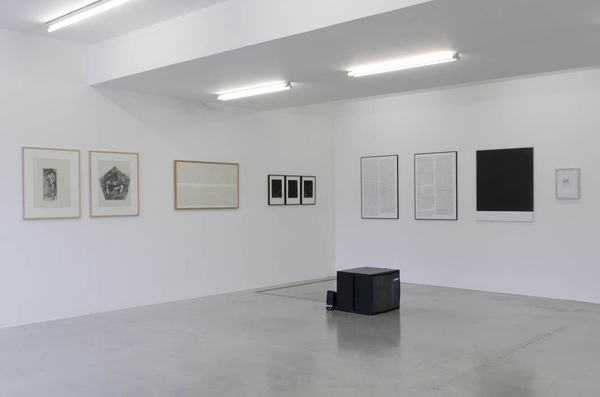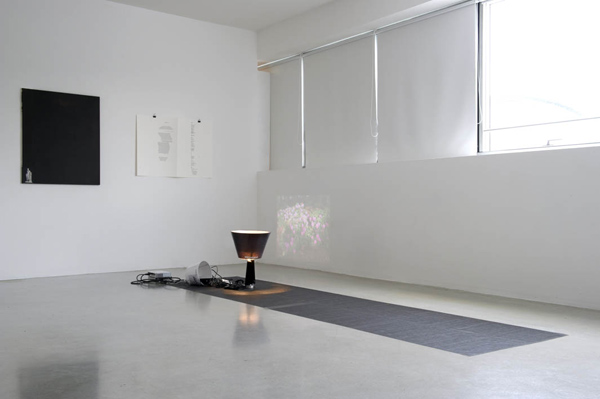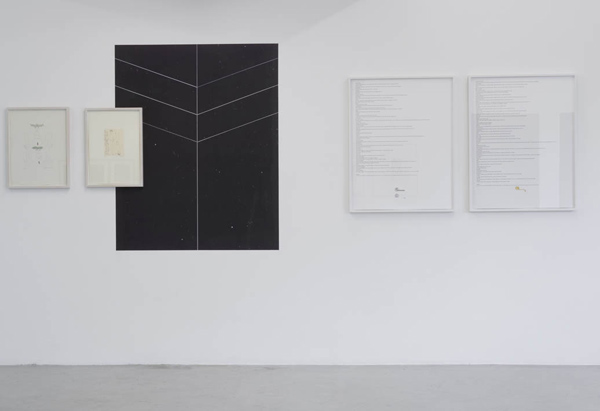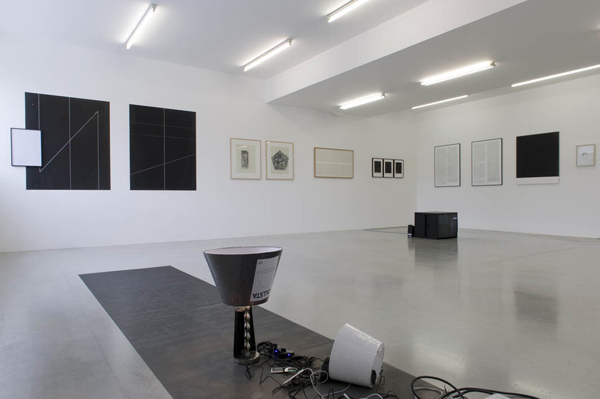From April 12 to May 18, 2013
Opening on April 12, 2013 from 6pm to 9pm
fr/uk
Pétrone/Pétrole
cur. Vincent Romagny
with
bruant&spangaro, Jay Chung & Q Takeki Maeda, Hanne Darboven, David Jourdan, Lisa Holzer,
Monica Majoli, Fabian Marti, Carol Rama, Anne Laure Sacriste, Josef Strau and Benjamin Swaim
There's no getting free of lost notes, of the book to come that will never materialise, of the abyssal void left by an unfinished text. Paradoxically one can feel, through this very absence, that one is attaining to 'the abyss beneath illness, which was the illness itself [and which] has emerged into the light of language.' The difference being that here to continue the interplay of oxymorons so dear to Foucault it is through the negation of the text that one perceives this abyss. Where writing can be seen as covering a bottomless pit, the lost text lays it bare. It is up to us, then, to plumb the unfinished work, the rough draft, as what has survived the disaster, as its intangible sign. It is up to us to read and reread until our eyes are dropping out, to follow the lineaments of the preparatory sketches, to cross-reference the texts, to plumb the blanks black holes that puncture it. Maybe this makes these notes all the more precious, charged as they are with the beauty that has failed to survive their destruction or was thwarted by their incompletion: a further beauty, overlaid on that of Pasolini's prose in his final, Petronius-inflected prose work, Petroleum, whose narration of the flight of the object of desire echoes the lack at the core of its incomplete text. This entails, then,
plunging into darkness (bruant&spangaro, Fabian Marti, Anne Laure Sacriste, Benjamin Swaim), into rough drafts and printed material (Monica Majoli, Carol Rama), and into texts (Hanne Darboven, Lisa Holzer, David Jourdan, Josef Strau): not in order to dredge up whatever has been lost, but to preserve the beauty of which the works, like the texts we have taken pleasure in associating them with, are an intimation,. For in the final analysis, these notes are proof of their enduring memory, not of their loss.




